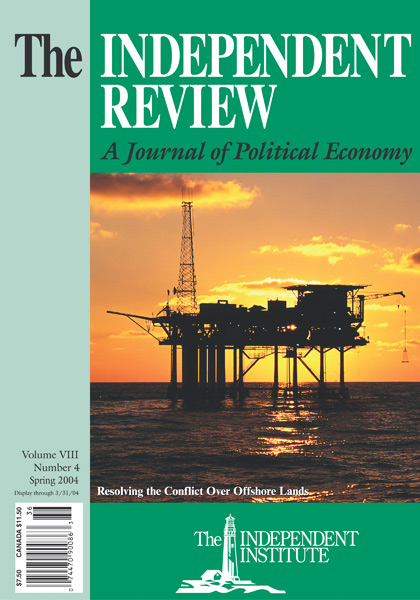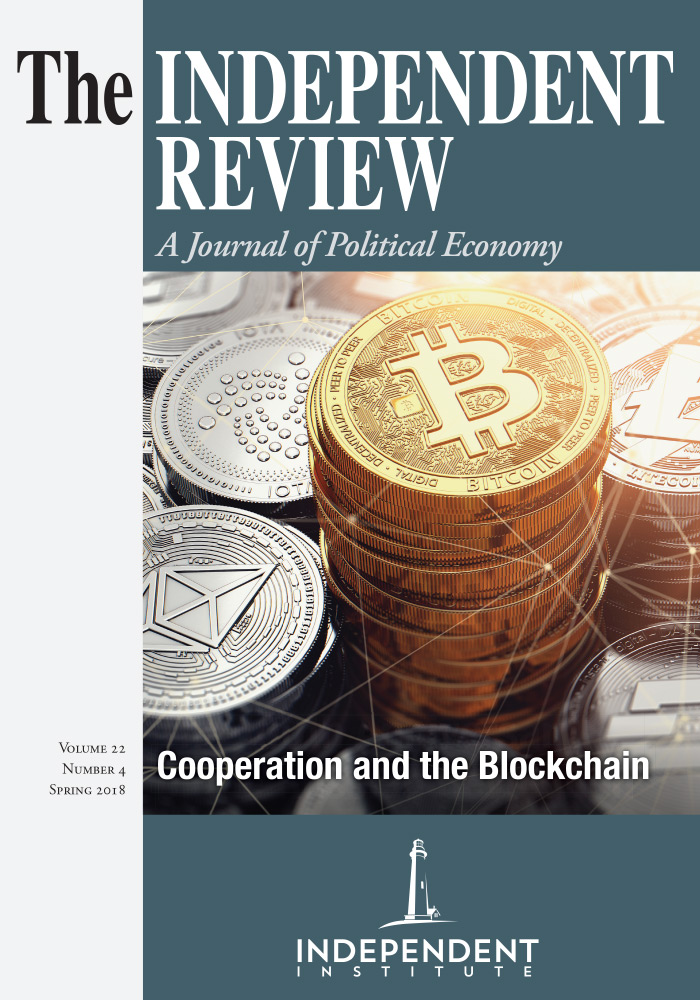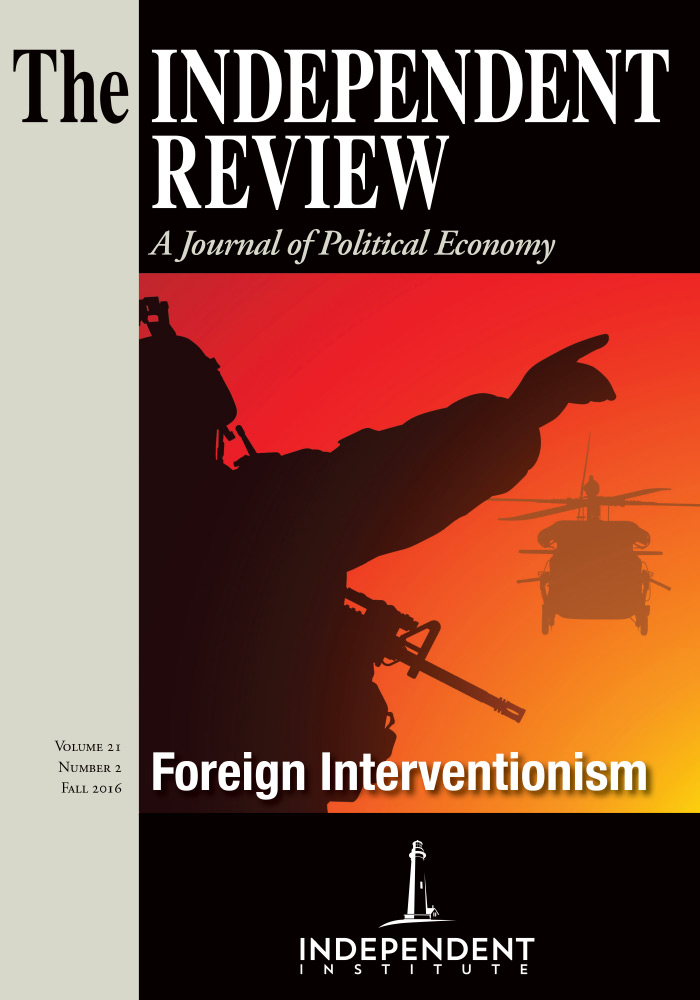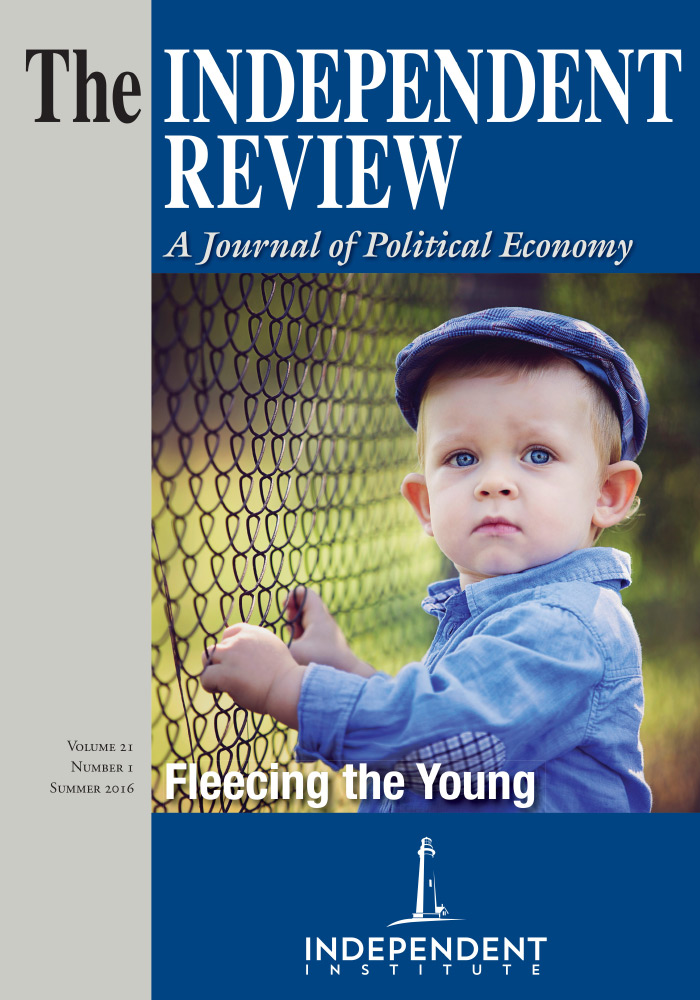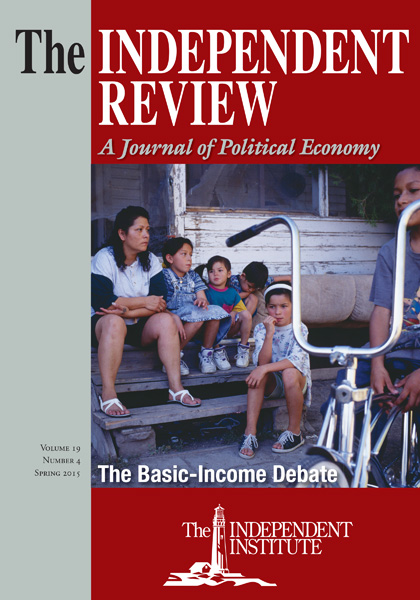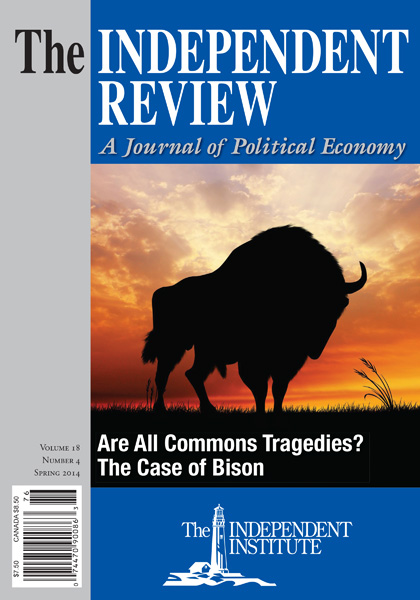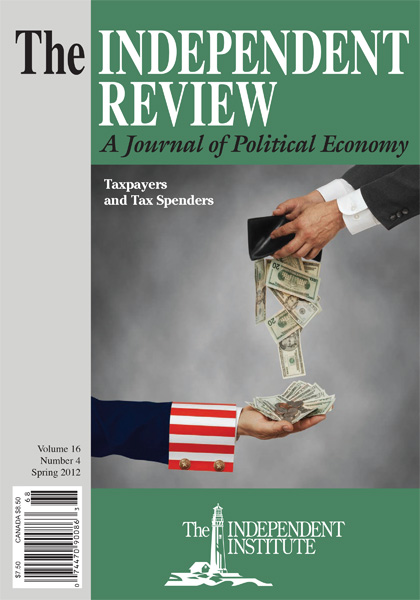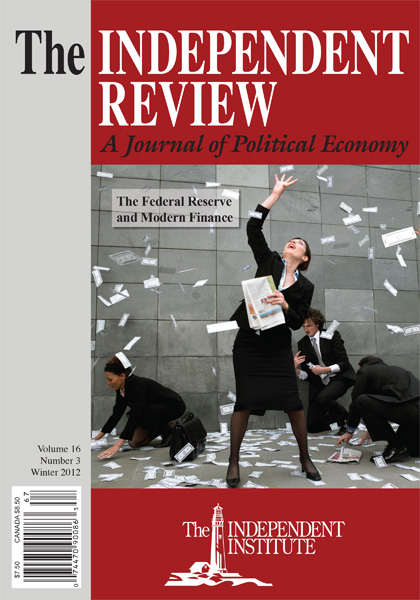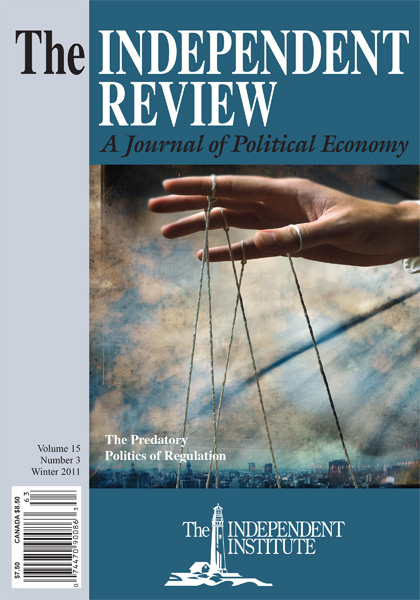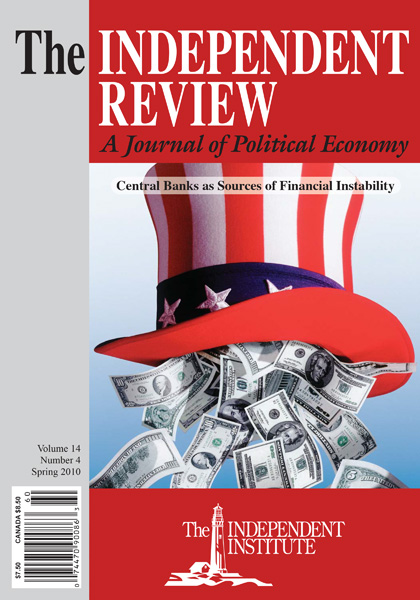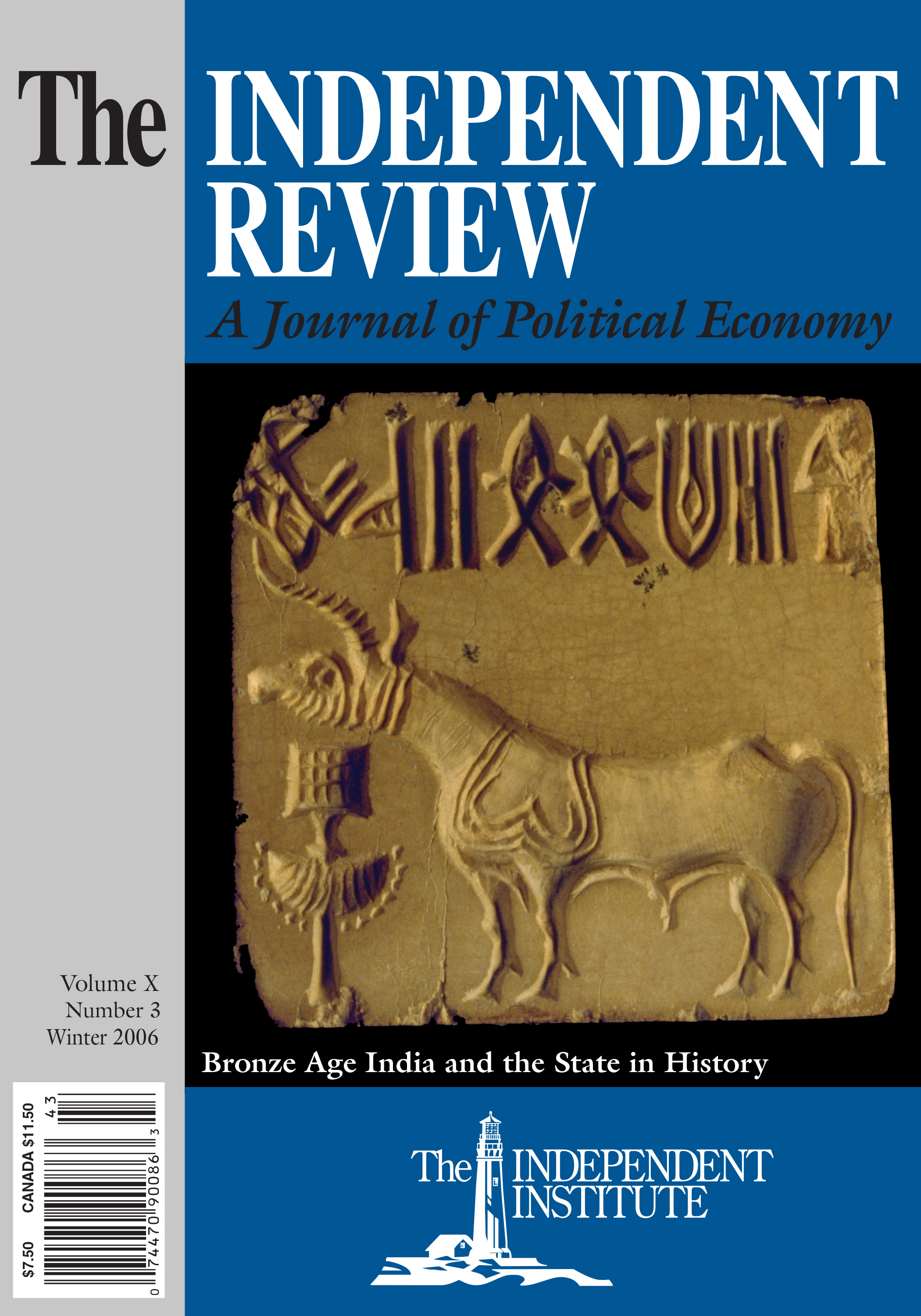Republican congressional leader Robert A. Taft articulated a non-interventionist foreign-policy vision sharply at odds with the internationalism of Truman and Eisenhower. Although derided as ostrich-like, Taft was prescient on several points, such as the structural weakness of the United Nations and the propping up of repressive regimes that would result from U.S. interventionism.
Article
First elected to the Senate in 1938, Robert A. Taft represented Ohio from 1939 until his death in 1953. Although Taft was defeated for the Republican presidential nomination three times, in 1940, 1948, and 1952, he was universally acknowledged as the leader of the Republican Party’s congressional wing. Taft offered both a positive vision of international organization following World War II and a prescient critique of the internationalist policies developed by Presidents Roosevelt and Truman. Dwight Eisenhower embraced and continued these internationalist Democratic policies during his two terms in office (1953–61), so his victory over Taft at the Republican convention in 1952 represented a decisive rejection of the alternative foreign policy advocated by Taft and other isolationist Republicans of that period. The significance of Taft’s defeat—and the thesis of this article—was well articulated by journalist Nicholas von Hoffman, writing in the midst of the Vietnam War almost two decades later. Observing that Taft’s critique of internationalism had been vindicated subsequently on almost every point, von Hoffman characterized Taft’s foreign-policy vision as “a way to defend the country without destroying it, a way to be part of the world without running it” (qtd. in Radosh 1975, 147).
Many of Taft’s contemporaries dismissed him as an “isolationist” in foreign policy (for good examples, see Schlesinger 1952 and Van Dyke and Davis 1952). Although subsequent scholarship has suggested that this characterization was highly misleading (Berger 1967, 1971, 1975; West 1952), Taft was isolationist if isolationism is defined, following careful scholarship, as “an attitude of opposition to binding commitments by the United States government that would create new, or expand existing, obligations to foreign nations” (Rieselbach 1966, 7). Like many Americans of his era, Taft did not welcome the intrusion of foreign policy and gladly would have “let the rest of the world go its own way if it would only go without bothering the United States” (Osgood 1953, 433). For much of his career, Taft advocated what he called “the policy of the free hand,” whereby the United States would avoid entangling alliances and interference in foreign disputes. This policy permitted government leaders the freedom of action to decide in particular cases whether a sufficiently vital U.S. interest warranted involvement (Taft 1951, 12).[1]
The real problem with the term isolationism is not that it misrepresented Taft’s general orientation, but rather that it permitted defenders of various Roosevelt and Truman policies to discredit Taft without having to engage his arguments seriously. Labeling opponents of administration policies as “isolationists” implied that they were naive, like ostriches with their heads buried in the sand, nostalgic for an earlier era in which the United States could hide behind the safety of two oceans and avoid involvement in international affairs (Doenecke 1979, 11–12; Graebner 1968).[2] In reality, however, none of the members of the isolationist wing of the Republican Party ever believed it possible for the United States to isolate itself from the rest of the world, and so all of them accordingly rejected that label.
Taft’s foreign-policy views were neither naive nor nostalgic. To the contrary, his critique of internationalism deserved to be taken seriously and was vindicated subsequently on many points. Taft criticized the Roosevelt/Truman approach to postwar international organization, correctly pointing to features of the United Nations that would prevent its serving as a real force for peace and equality under the law. He also challenged the Truman administration’s assessment of the Soviet military threat against western Europe, a threat that now appears to have been overstated consciously and deliberately to secure congressional support for the Marshall Plan, universal military training, and an expanded air force (Berger 1967; Kofsky 1993). He anticipated correctly that a steady rise in defense outlays could lead to a “garrison state” and the erosion of civil liberties (Higgs 1987). Finally, Taft was prescient in warning that even well-meaning internationalism would necessarily degenerate over time into a form of imperialism that would breed resentment against the United States around the globe, eventually endangering U.S. national security.
Taft was no backward-looking conservative.[3] On domestic issues, he sought to maximize individual liberty while minimizing relationships based on power and control. In the terminology of political philosophers, he saw the United States as a civil association operating under the rule of law. Although he recognized the need to accommodate change in order to preserve the institutions and practices he valued as truly precious, he regarded many New Deal measures as radical rather than reformist and fought against the New Deal wherever he found it to be a threat to the basic form of the American polity as a civil association operating under the rule of law. His foreign-policy views were an extension of this same political philosophy to international affairs; he proposed that postwar international organization be centered around an international tribunal founded on the rule of law, establishing within international affairs the same regime he espoused in the domestic realm.
In this article, I lay out Taft’s political philosophy, then show how Taft’s foreignpolicy vision grew out of this same libertarian vision and contrast that vision with Eisenhower’s to make clear just what was lost when the Republicans nominated Eisenhower instead of Taft in 1952. Finally, drawing on the work of A. James Reichley (2000), I distinguish between altruistic and national-interest isolationism with respect to Taft specifically. Although Taft exhibited both types of isolationism at different times, he was consistently isolationist throughout his career, and his underlying libertarian philosophy gave an overall coherence to his foreign policy even as he moved from one type to the other.
Taft’s Political Philosophy
Throughout his political career, Taft sought to preserve what he regarded as an “American way of life” in which the liberty of individual Americans would be circumscribed only by the rule of law. (For an especially clear and concise statement of this philosophy, see Taft 1949.) Although he recognized the need to reform institutions and practices in order to preserve the core elements of the system he cherished, he consistently fought against New Deal policies that he believed would change the fundamental character of the system. (For the best statement of Taft’s distinction between necessary reforms and radical New Deal innovations, see Taft [1935] 1997).[4]
Taft viewed the United States as a civil association, not a purposive association (Oakeshott 1991, 438–61). Within a purposive association, citizens are related to one another by virtue of their pursuit of some shared purpose, and they derive their identity as citizens from this common enterprise. The first purposive associations were religious, with the state assuming the role of guardian and promoter of orthodox beliefs; some nostalgic conservatives still view the state in this way (Hayes 2002). Religion is not the only basis for purposive associations, however; a society becomes a purposive association any time it defines itself in terms of some common enterprise, whether that enterprise be the promotion of economic efficiency, the spread of democracy throughout the world, or the pursuit of some vision of social justice (Oakeshott 1991, 450–53). Taft rejected all such visions because individuals can never really be free within a purposive system inasmuch as their actions must always be instrumental to the achievement of the common purpose.
By contrast, within civil associations no common purpose unites people into a shared enterprise. Rather, people are free to pursue their own individual purposes as long as they do not interfere with the rights of others to do likewise. The social order is spontaneous rather than planned or directed (Hayek 1973; Horwitz 2001). The bases for association here are territorial boundaries and a commonly accepted set of rules governing people as they pursue happiness in their own individual ways (Oakeshott 1991, 454–57). By this reasoning, we are Americans not because we have particular values or common goals, but rather because we live within the territorial boundaries of the United States and pursue our own individual strategies for attaining happiness subject to the Constitution and laws of the United States. Taft certainly viewed the United States as a civil association rather than a purposive association.
To Taft, a free economy was the natural corollary of a free society, and his desire to preserve economic freedom led him to oppose a variety of domestic and foreign policies promulgated by the Roosevelt and Truman administrations, including the steady growth of federal spending, increased power to federal agencies, and increased defense outlays that might lead to what he called a “garrison state.” A free economy, however, was desirable primarily because it was founded on liberty. The normative case for the free market ultimately rests less on its potential efficiency in allocating resources than on the way it orders relationships among citizens. Within a free-market economy, transactions are purely voluntary, and relationships among individuals are based on mutual consent rather than on power (Knight 1982). That free economies outperform socialist economies was important to Taft, but it was nonetheless a subsidiary benefit. Taft saw that increases in the general standard of living empowered individual Americans in a variety of ways, thus adding to their effective liberty (Kirk and McClellan 1967, 132–39; Smith and Taft 1939, 13–21).
The role of government within a civil association is necessarily limited, in distinct contrast to its role in a purposive association. Within a civil association, “governing is recognized as a specific and limited activity; not the management of an enterprise, but the rule of those engaged in a great diversity of self-chosen enterprises” (Oakeshott 1991, 429). Because individuals pursuing their own ends inevitably impinge on others doing likewise, absolute liberty is undesirable, and some restrictions on individual freedom of action may actually increase effective liberty (Kirk and McClellan 1967, 67–68). Taft articulated this vision of the role of government in a debate with U.S. Representative T. V. Smith in 1939: “Government has been generally conceived to be a keeper of the peace, a referee of controversies, and an adjuster of abuses, not a regulator of the people, or their way of life, or their business and personal activities” (Smith and Taft 1939, 15).
Equally important, in Taft’s view, within a properly functioning civil association the state’s power over its citizens must be circumscribed by the rule of law (Hayek 1973; Oakeshott 1991, 425–34). Under the rule of law, all laws exhibit two qualities (Hayek 1960, 1973; Hayes 2001, 174–75). First, all rules governing the behavior of citizens and government officials are as clear and specific as possible. Where rules are unambiguous, citizens can understand easily what the rules are and know the consequences of violating them. They can take such rules into account as they pursue their own individual purposes and activities. Moreover, clear and specific rules minimize the arbitrary exercise of power by limiting the discretion available to government officials as they enforce the laws; hence, we have in the classic phrase a “government of laws, not of men.” Throughout his career, Taft consistently opposed grants of broad discretionary power to administrative agencies, and he viewed the growth of the federal government under the New Deal and Fair Deal as giving rise to a new system of policymaking by pressure groups that elevated the pursuit of self-interest at the expense of the public interest, thus reducing the role of “political principle as a force in the determination of Government policy” (Taft 1950, 155; for a more recent critique of interest-group liberalism along the same lines, see Lowi 1979).
Second, under the rule of law, all laws are impersonal, applying equally to everyone. Legislation should never discriminate by singling out identifiable groups for privileges or punishments. This evenhandedness is the principle of equality under the law. Adherence to this principle of equal treatment of all individuals, regardless of their wealth or power, is the only reliable defense the weak can have against the strong (Hayes 2001, 181–89; Lowi 1979, 298).
Taft’s commitment to equality under the law is exemplified by his primary legacy in domestic policy, the Taft-Hartley Act of 1947. In contrast to many Republicans, Taft accepted labor unions as essential features of modern capitalism. He insisted on the right to strike, and he sought to minimize government intervention in unionmanagement relations. At the same time, he believed that the government had to act to assure equal justice under law. The National Labor Relations Act had specified unfair management practices without providing any corresponding list of unfair union practices, and the National Labor Relations Board had favored unions over management. A new law was needed, in Taft’s judgment, both to restore the balance between unions and management and to protect the rights of individual workers against union leaders (Kirk and McClellan 1967, 109–31; Patterson 1972, 352–66).
Taft’s Libertarian Foreign-Policy Vision
Because of his leadership role within the Republican Party (which was no less real during those periods in which he did not occupy a formal leadership position within the party), Taft felt compelled to master a broad range of issues outside his normal interests and committee responsibilities. In particular, although his primary interests lay in domestic policy, he felt an obligation to take a leadership role on foreign policy as well, given the importance of such issues as U.S. involvement in World War II, the shape of the postwar order, and the Korean War. As Taft said in a speech to the U.S. Chamber of Commerce in 1951, “People have accused me of moving into foreign policy. The fact is that foreign policy moved in on me” (qtd. in Patterson 1972, 474).
When forced by events to deal with international problems, Taft brought with him the deeply held and carefully formulated political philosophy reviewed in the preceding discussion. He believed that the primary purpose of U.S. foreign policy, in light of which all specific policies must be considered, must always be “to protect the liberty of the people of the United States” (Taft 1951, 11). For example, he opposed new military outlays or international commitments when he believed they would increase the overall level of government expenditures enough to threaten the viability of the free economy.
The secondary purpose of foreign policy, subordinate for Taft only to the defense of liberty, was the maintenance of peace (Taft 1951, 11–12). He abhorred war and consistently sought to avoid U.S. involvement in war if possible. He also questioned policies (such as the Truman Doctrine and the development of the North Atlantic Treaty Organization [NATO]) that he believed might provoke a war with the Soviet Union that otherwise might be avoided. Taft doubted that wars accomplished much in the end, noting that the two world wars fought in the twentieth century had produced millions of casualties while leaving in their wake dictatorships and totalitarian governments. He believed that the degree of economic mobilization and centralized planning that wars require is antithetical to a free economy and thus to liberty (Taft 1951, 11–12). Throughout his career, he regarded proposals for increased military outlays as threatening the development of a “garrison state” at home and as potentially provoking war or arms races abroad (Berger 1967, 133).
Although Taft accepted the need to go to war whenever the liberty of the American people was directly threatened, he believed war should never be undertaken to advance any other purpose. He especially opposed resort to war to advance moral crusades of any sort—for example, Roosevelt’s depiction of World War II as a crusade to establish the “four freedoms” around the world:
| Nor do I believe we can justify war by our natural desire to bring freedom to others throughout the world, although it is perfectly proper to encourage and promote freedom. In 1941 President Roosevelt announced that we were going to establish a moral order throughout the world: freedom of speech and expression, “everywhere in the world”; freedom to worship God “everywhere in the world”; freedom from want, and freedom from fear “everywhere in the world.” I pointed out then that the forcing of any special brand of freedom and democracy on a people, whether they want it or not, by the brute force of war will be a denial of those very democratic principles which we are striving to advance. (1951, 16)[5] |
Although Taft was unwilling to use force to impose democracy on other nations, he did view liberty as desirable for all people everywhere, and he believed a workable international organization must be founded on the sovereign equality of free and independent states. As early as 1944 he suspected that Roosevelt, Churchill, and Stalin would carve up the postwar world into spheres of influence that denied any voice to the peoples of Poland, Finland, Estonia, Latvia, and Lithuania in direct violation of the language of the Atlantic Charter, in which the three powers had committed to respecting the rights of all peoples to choose their form of government and to restoring sovereign rights and self-government to nations that had been deprived of them forcibly. The real question, as Taft recognized, was not whether the great powers should force freedom on unwilling nations but rather whether the great powers would permit self-determination for previously occupied nations. In his view, a United Nations created by powers this cynical and prevented by the veto power from defending weak states against the designs of the strong could never establish an international order founded on “the freedom and equality of treatment for every nation” (Taft [1944] 2001, 555–56). Although Taft voted for membership in the United Nations, he eventually came to believe that the United States should “develop our own military policy and our own policy of alliances, without substantial regard to the non-existent power of the United Nations to prevent aggression” (Taft 1951, 44).
Taft’s vision for a peaceful and just postwar world differed sharply from that advanced by Presidents Roosevelt and Truman precisely because it represented an international application of the same libertarian philosophy that shaped his domestic-policy views. Taft proposed a system in which all nations would “agree on a definite law to govern their relations with each other and also agree that, without any veto power, they will submit their disputes to adjudication and abide by the decision of an impartial tribunal” (Taft 1951, 40). Decisions of the international court would be enforced by an international police force, to which the United States would contribute troops. All nations would be treated equally under this international rule of law, thus providing real protection for the rights of the weak against the strong. Taft objected to the United Nations because it was not based on any underlying foundation of law and because Security Council members’ ability to veto resolutions effectively precluded the development of any truly universal law, “for surely nothing can be law if the five largest nations can exempt themselves from its application” (Taft 1951, 39–40).
At the same time, Taft explicitly rejected the idea of a world government that would reproduce the U.S. constitutional structure on a global level—with a supreme legislature, executive, and court—and that would initiate a system of international federalism in which laws made at the world level superseded decisions made at the nation-state level. Taft believed that a world government of this sort inevitably would infringe on the liberties of all member states and their citizens. In particular, he believed that such a plan would “subject the American people to the government of a majority who do not understand what American principles are and have little sympathy with them,” bringing “an end to that liberty which has produced in this country the greatest happiness, the greatest production, the highest standard of living the world has ever seen” (Taft 1951, 44–45).
In Taft’s vision, by contrast, international law would govern only the relationships among states; the international tribunal would have no authority whatever to regulate the internal affairs of sovereign states. Rather, the international order would constitute a spontaneous global social order, or civil association, in which the freedom of action of individual states and their citizens would be circumscribed only by the rule of law, which would apply only to their interactions with one another:
| force should not be called for against any nation because of any internal domestic policy, except rearmament in excess of a quota imposed or agreed to. Interference in domestic policies, even such vital matters as tariffs or the treatment of minorities, would be more likely to make war than to prevent it. The test is: is the subject one on which the people of the United States would be willing to have other nations interfere with our internal actions? If not, we should not attempt to impose such interference on others. (Taft 1951, 38) |
Until all nations, including the United States, are willing to enter into such an agreement, however, the weak can have no real protection against the strong, and “international progress toward peace is bound to fail” (Taft 1951, 41).
Taft placed two preconditions on U.S. participation in the international organization he envisioned after World War II: fair boundaries had to be negotiated, providing for full self-determination for previously occupied nations; and fair economic arrangements had to be established in which every nation would have access on equal terms to the raw materials of the world (Taft [1944] 2001, 555–56). His contemporary scholarly critics saw these conditions as permitting him to pay lip service to the idea of international organization while providing a basis for ultimate opposition to the kind of institution that realistically would be acceptable to the great powers. When viewed in light of the foreign-policy vision identified here, however, these two conditions can be recognized properly as reflecting Taft’s lifelong commitment to the principles of self-determination and equality under the law.
The Republican Road Not Taken
Whatever its merits, Taft’s vision of an international tribunal built on a foundation of international law almost surely could not have been achieved in the immediate postwar period because the Soviet Union would not have accepted any body of international law that codified the status quo:
If, as it would appear, laws tend to stabilize power relationships and to establish moral values, then anyone who suggests that it is possible to agree upon the content of international law assumes that the most powerful states, at least, are satisfied with the present power distribution, and that they are in substantial agreement on moral values. But implicit in his [Taft’s] approach to the Soviet threat is the recognition that the Soviet Union does not want to stabilize the distribution of power in its present form any more than it wants to accept American standards of morality. (Armstrong 1955, 214)
However, a foreign policy based on Taft’s libertarian principles would have taken the United States down a very different road even if his vision of international organization based on the rule of law proved unattainable. Taft and Eisenhower started from entirely different first principles. As we have seen, Taft ranked liberty above all other values. Although he was unwilling to embark on moral crusades to extend liberty to other nations, he nevertheless valued liberty for all people, and he consistently championed the principle of self-determination. If he perceived limits on what the United States could accomplish elsewhere in the world, he also appreciated the distinct limits of American virtue: the United States was no less vulnerable to the temptations of empire than any other nation placed in the same position.
By contrast, Eisenhower based his foreign policy first and foremost on the need to secure access to raw materials, as he made clear in 1951:
| From my viewpoint, foreign policy is, or should be, based primarily upon one consideration. That consideration is the need for the U.S. to obtain certain raw materials to sustain its economy and, when possible, to preserve profitable foreign markets for our surpluses. Out of this need grows the necessity for making certain that those areas of the world in which essential raw materials are produced are not only accessible to us, but their populations and governments are willing to trade with us on a friendly basis. (qtd. in Cook 1984, 112–13) |
Thus, although Eisenhower was clearly more willing than Taft to commit the United States to membership in the United Nations and in collective security arrangements such as NATO, this difference was not their only significant one. A second, equally important difference centered around Eisenhower’s support for tax incentives, subsidies, relaxation of antitrust laws, and other government policies designed to encourage and protect American corporations’ direct investment in Third World countries. (For more on this point, see Cook 1984, 293–346.)
Eisenhower and his successors never fully realized (or at least never acknowledged publicly) that aggressive U.S. involvement in the Third World as advocated by the “forward-looking” internationalists would eventually necessitate tight control of political and economic developments in those nations. Fostering foreign investment through changes in the tax code or the relaxation of antitrust laws would not be enough. Sooner or later, protecting those foreign investments from political instability, communist guerrilla movements, or reformist regimes interested in nationalization would also be necessary. Political change in developing countries would have to be subordinated to U.S. economic and political interests. When U.S. corporate interests were threatened, as in Iran or Guatemala, regimes would be toppled. (On Iran, see Kinzer 2003 and Roosevelt 1979; on Guatemala, see Cook 1984, 217–92.) More often, however, U.S. interests would be furthered by regime stability, and state terrorism—including detention, torture, death squads, and “disappearances”—would be employed to prevent the formation of labor unions or political parties that might challenge incumbent regimes (Cook 1984, 328–32; Herman 1982). U.S. support for right-wing military governments thus would make it impossible for the subject nations to deal with internal problems through the development of social movements or the peaceful transfer of power (LaFeber 1984, 15–16).
A study of U.S. national-security policy toward Latin America illustrates the logic of this process very well (Schoultz 1987). The primary goal of U.S. foreign policy toward Central and South America throughout the postwar period was to maintain regime stability. Human rights was, at best, a residual concern that came into play only in the absence of a perceived security problem in the region—which was almost never during the Cold War period. Although all policymakers with a responsibility for Latin America shared this emphasis on regime stability, they divided into two groups in their explanation of the causes of instability, one group stressing the role of communist subversion in fostering instability, and the other identifying the underlying causes as extreme poverty and growing income inequality. Unfortunately for the Latin Americans, no one had a sophisticated theory of how instability might be managed once it had become a problem, and the group that viewed instability as caused by poverty rather than by communist subversion nevertheless saw a real danger in the potential for communists to exploit instability to overthrow regimes friendly to the United States. In such circumstances, most of the time both groups perceived policies that fostered human rights as potentially destabilizing, and the United States found itself trapped into supporting regimes that frequently employed rape, torture, and murder to maintain themselves in power. This same pattern holds for U.S. involvement in the Middle East (see Zunes 2003, 6–34).
Taft’s record in the Senate on foreign-policy issues suggests strongly that he would have pursued a different foreign policy toward developing nations. In distinct contrast to Eisenhower, Taft did not base his vision of foreign policy on the need to secure stable access to raw materials and foreign markets. To the contrary, his foreign policy rested on the twin goals of maintaining the liberty of the American people and preserving peace. This difference in fundamental values led him to question the importance of expanded foreign investment to the U.S. economy and to warn that such investment eventually might lead to resentments that would make Third World countries vulnerable to communist propaganda, thus threatening the peace and liberty of the United States:
| It is said that foreign investment will make for peace. I don’t think history shows anything of the kind. Ordinarily after an investment is obtained, the people of a country are likely to regard its owners as absentee landlords only concerned with draining away the assets of the country. Foreign investors are likely to be regarded as exploiters of natural resources and cheap labor. In the past they often have been such. Their activities are likely to build up hostility to the United States. This is even more true today with the growth of Socialist and Communist Parties in many countries. Witness the agitation against American sugar investments even in Puerto Rico and Cuba. (Taft 1945, 637)[6] |
Moreover, in distinct contrast to Eisenhower, Taft perceived significant potential dangers stemming from the provision of military assistance to foreign governments. In 1946, he successfully opposed a Truman administration bill that would have authorized the president to send military advisers to nations requesting them, arguing that “we should not send military missions all over the world to be teaching how to fight the American way” (qtd. in Berger 1971, 176). Taft viewed such assistance as undercutting the United Nations and as provoking the Soviet Union by supplying and training nations that potentially might serve as our allies in an aggressive war.
Although Taft agreed with Eisenhower on the need to provide developing countries with economic assistance to help restore their economies in the aftermath of war and “to relieve human misery, which may lead to war,” he was much more pessimistic about what such aid could achieve, and he believed it should be limited in amount and scope. In his view, conditions attached to this aid in order to promote the achievement of American goals might easily elicit resentment by recipient nations over time. In such circumstances, it would be tempting “to slip into an attitude of imperialism and to entertain the idea that we know what is good for other people better than they know themselves. From there it is an easy step to the point where war becomes an instrument of public policy rather than the last resort to maintain our own liberty” (Taft 1949, 119).
Thus, the choice of Eisenhower over Taft was not a triumph of forward-looking leadership over backward-looking leadership, but rather a fateful decision to continue along a path that eventually would lead to “an informal empire, an empire based on the projection of force over every corner of the world and on the use of American capital and markets to force global integration on our terms at whatever costs to others” (Johnson 2000, 7). The American public did not and still do not fully understand the ultimate consequences of this critically important decision because the isolationist critique was dismissed without ever being engaged and debated seriously. Taft’s vision of foreign policy—the Republican road not taken—would have produced a substantially different postwar global order whether or not his distinctive vision of international organization was ever implemented successfully.
Altruistic and National-Interest Isolationism
Taft’s foreign-policy vision represented a blend of idealism and realism. Taft understood fully both the role of national interest and the pursuit of power in foreign policy, and he always gave primacy to U.S. national interests. Although his proposal for an international tribunal might be characterized as utopian, given the postwar balance of power, he advanced it because he believed such an institution could contribute to the preservation of peace and to the liberty of Americans. Taft’s political contemporaries resolved this seeming contradiction by dismissing his proposal for an international tribunal as insincere, a political expedient necessitated by the overwhelming postwar support (at both elite and mass levels) for some kind of international organization, and many scholars support this assessment. As we have seen, however, Taft’s vision of international organization was not merely a political expedient; to the contrary, it was a natural extension of his core political philosophy to the international realm. An accurate understanding of Taft must include both these elements, however contradictory they may seem.
|
Figure 1
Four Distinct Foreign-Policy Orientations |
||
| Internationalist: Willing to intervene in foreign affairs | Isolationist: Reluctant to intervene in foreign affairs | |
| Emphasis on the national interest as primary value in foreign policy | National-interest interventionism | National-interest isolationism |
| Significant emphasis on altruism in foreign policy | Altruistic interventionism | Altruistic isolationism |
|
Source: Reichley 2000.
|
||
Taft’s foreign-policy views cannot be captured adequately by making a simple, dichotomous distinction between isolationism and internationalism. To the contrary, as political scientist A. James Reichley (2000) has shown, at least four distinct foreignpolicy orientations may be identified. Reichley derives his four-cell typology from the cross-tabulation of two underlying dimensions. The first dimension differentiates policymakers who are prepared to intervene economically, politically, or militarily in foreign affairs from those (such as Taft) who are extremely reluctant to intervene (193). Although this first dimension clearly captures the conventional distinction between isolationists and internationalists, Reichley argues that we need to consider a second dimension as well. This second dimension distinguishes between policymakers who focus primarily on “America’s national interest as almost the sole value to be pursued in the conduct of foreign policy” and those who emphasize “more altruistic concerns, such as spreading democracy or achieving a fairer distribution of the world’s goods” (193). Acknowledging that few, if any, pure cases exist and that almost all policymakers attach at least some value to both dimensions, Reichley nevertheless identifies four distinct foreign-policy orientations, as shown in figure 1.[7]
Reichley identifies two distinctive types of internationalists. National-interest interventionists are essentially foreign-policy “realists.” Following Morgenthau’s (1962) ideas, they define international politics as primarily a struggle for power among nations pursuing their national interests. Altruistic interventionists, by contrast, tend to be foreign-policy “idealists” who seek to inject moral considerations into foreign policy, typically by moving away from power politics and toward a system of international law and international organization.
Reichley likewise identifies two distinctive forms of isolationism. Nationalinterest isolationists are reluctant to intervene in world politics because they regard international commitments as limiting U.S. freedom of action, making war more likely and entangling the United States in foreign disputes (or burdens) that really do not concern it. Altruistic isolationists, by contrast, are motivated primarily by an opposition to imperialism. Their altruism is not manifested through positive efforts to promote democracy or to redistribute wealth among nations; rather, they are isolationist because they eschew the pursuit of national power, with its inevitable goal of conquest or domination of other nations. To the contrary, they seek a world in which power relations among states are minimized, and, accordingly, they reject any attempt to impose the will of one nation on other nations.
Although Taft was clearly an isolationist within Reichley’s framework, his foreign-policy vision is not captured adequately by either of the two isolationist categories. [8] Taft’s positive vision—his support for an international regime based on the equality of nations under the rule of law—clearly reflected an altruistic form of isolationism. So did his consistent rejection of imperialism in any form. At the same time, his opposition to specific Truman policies, as described earlier, forced him most of the time into a posture of national-interest isolationism.
The common thread that gave overall coherence to Taft’s foreign policy was a consistent libertarianism. His devotion to liberty extended to other nations as well as to the United States. His ideal for the international system was a spontaneous social order governed by the rule of law, and he clearly saw the principle of selfdetermination as foundational to such a system. Although the world’s failure to adopt such a system eventually led him to reject the United Nations as a constraint on American freedom of action, that failure did not diminish his fundamental libertarianism. He was prescient in warning that foreign investment would lead to exploitation and imperialism, creating resentments that eventually might threaten U.S. national security. And where Eisenhower and his successors shored up ruthless dictators to ensure regime stability, Taft viewed the world as “big enough to contain all kinds of different ways of life” without threat to U.S. interests (Patterson 1972, 243). Although he would neither lead a crusade to liberate foreign nations nor commit U.S. troops to foreign conflicts in which American liberty was not threatened directly, he almost surely would have been appalled to find U.S. foreign policies linked in any way to the development of state terrorism and to the widespread denial of legal due process and fundamental political rights in developing nations.
With the collapse of the Soviet Union, the United States is now the world’s only remaining superpower, making it much easier to implement Taft’s vision than it would have been in the 1950s. Although few nations would acquiesce willingly in the development of a body of international law ratifying a U.S. empire, almost surely there would be much less resistance to statutes establishing equality under the law as a matter of principle. Although progress toward such a system necessarily would be difficult and incremental at best, discrete foreign-policy actions might be evaluated in the near term with regard to their tendency to move us closer to or farther away from the kind of regime Taft advocated.
At present, we clearly are moving in the opposite direction, pursuing homeland security through the acquisition of overwhelming military capability and a reliance on preventive war. Both homeland security and international stability are more likely to be attained, however, by the patient, incremental pursuit of the kind of regime Taft envisioned—one founded on the rule of law and equality of nations under the law. Although such a system would be more consistent with the ideals for which we claim to stand as a nation, it remains an open question whether the United States, as the world’s richest country and its dominant military power, will prove willing to forgo empire for a different kind of system in which equality under the law at least begins to supersede power as the basis for international relations.
Footnotes
1. By 1951, if not earlier, Taft had come to believe that various developments had combined to render the policy of the free hand obsolete. The development of atomic weapons and improvements in the speed and range of aircraft had effectively eliminated the geographical isolation that previously had made the country safe from foreign attack. In addition, Taft regarded the threat of communism as unprecedentedly serious—more of a threat than national socialism, for example—because of its ideological component (Taft 1951, 18–19).
2. This article focuses on Taft’s foreign-policy views, but Taft was only the most articulate and best-known member of a larger group characterized as isolationist. For more on this larger movement, see Radosh 1975; Rothbard 1964, 1978; and Stromberg 2000, 2001.
3. Elsewhere I have developed a typology of four distinct worldviews in which I distinguish between adaptive and nostalgic conservatives (Hayes 2001, 2002). Nostalgic conservatives are genuinely and unapologetically reactionary, desiring a return to the practices or institutional forms of an earlier age in which they believe society was organized around some revealed truth that subsequently has been eroded by modernity. Whatever the (sometimes substantial) merits of their arguments, such conservatives can be characterized legitimately as “backward looking.” By contrast, adaptive conservatives acknowledge the need for institutional reform in response to changing circumstances if they are to preserve what they regard as truly precious. Viewed in these terms, Taft clearly was an adaptive conservative.
4. On many domestic issues, Taft was much more liberal than Eisenhower, as Eisenhower himself conceded. For example, Taft was an early advocate of federal aid to education and a cosponsor of the ambitious Wagner-Ellender-Taft public-housing bill, enacted in 1949 (Davies 1964; Kirk and McClellan 1967, 139–56).
5. Taft’s opposition to Roosevelt on this point illustrates at least three of his core principles. Basing the case for war on the need to establish the four freedoms throughout the world not only would deny other nations the freedom to determine for themselves what form of government they preferred, as emphasized in the quotation, but also would justify war on some basis other than the defense of Americans’ liberty, therefore transforming the United States from a civil association into a purposive association, in which the liberties of Americans would be sacrificed to the pursuit of a shared crusade to create a new moral order.
6. Taft strenuously opposed any government programs to guarantee foreign investments by American corporations. As Berger observes, “So while Taft was unenthusiastic about either private or public economic expansion abroad, when confronted with a choice he preferred private enterprise. He also emphasized that any government-sponsored programs should be under American control” (1971, 175).
7. Reichley developed this typology to help interpret the foreign-policy divisions of the first part of the twentieth century. Accordingly, he characterizes Teddy Roosevelt as a national-interest interventionist, Woodrow Wilson as an altruistic interventionist, Henry Cabot Lodge as a national-interest isolationist, and Robert LaFollette as an altruistic isolationist.
8. Reichley notes correctly that few if any pure types exist. Although Eisenhower and Truman each combined elements of both forms of interventionism, Eisenhower wanted to shift the balance more toward the national interest and away from international altruism (Cook 1984, 92).
References
Armstrong, John P. 1955. The Enigma of Senator Taft and American Foreign Policy. Review of Politics 17 (April): 206–31.
Berger, Henry. 1967. A Conservative Critique of Containment: Senator Taft and the Early Cold War Program. In Containment and Revolution, edited by David Horowitz, 125–39. Boston: Beacon.
———. 1971. Senator Taft Dissents from Military Escalation. In Cold War Critics: Alternatives to American Foreign Policy in the Truman Years, edited by Thomas G. Paterson, 167–204. Chicago: Quadrangle.
———. 1975. Bipartisanship, Senator Taft, and the Truman Administration. Political Science Quarterly 90 (summer): 221–37.
Cook, Blanche Wiesen. 1984. The Declassified Eisenhower: A Divided Legacy. Garden City, N.Y.: Doubleday.
Davies, Richard O. 1964. “Mr. Republican” Turns “Socialist”: Robert A. Taft and Public Housing. Ohio History 73 (summer): 135–43.
Doenecke, Justice D. 1979. Not to the Swift: The Old Isolationists in the Cold War Era. Lewisburg, Pa.: Bucknell University Press.
Graebner, Norman A. 1968. Isolationism. Encyclopedia of Social Sciences, edited by David Sills, 217–21. New York: Macmillan, the Free Press.
Hayek, Friedrich A. 1960. The Constitution of Liberty. Chicago: University of Chicago Press.
———. 1973. Law, Legislation, and Liberty. Vol. 1, Rules and Order. Chicago: University of Chicago Press.
Hayes, Michael T. 2001. The Limits of Policy Change: Incrementalism, Worldview, and the Rule of Law. Washington, D.C.: Georgetown University Press.
———. 2002. James Madison on Religion and Politics: Conservative, Anti-rationalist, Libertarian. In James Madison and the Future of Limited Government, edited by John Samples, 147–63. Washington, D.C.: Cato Institute.
Herman, Edward S. 1982. The Real Terror Network: Terrorism in Fact and Propaganda. Boston: South End.
Higgs, Robert. 1987. Crisis and Leviathan: Critical Episodes in the Growth of American Government. New York: Oxford University Press.
Horwitz, Steven. 2001. From Smith to Menger to Hayek: Liberalism in the Spontaneous-Order Tradition. The Independent Review 6 (summer): 81–97.
Johnson, Chalmers. 2000. Blowback: The Costs and Consequences of American Empire. New York: Henry Holt, Owl Books.
Kinzer, Stephen, 2003. All the Shah’s Men: An American Coup and the Roots of Middle East Terror. New York: John Wiley and Sons.
Kirk, Russell, and James McClellan. 1967. The Political Principles of Robert A. Taft. New York: Fleet.
Knight, Frank H. 1982. Ethics and Economic Reform. In Freedom and Reform: Essays in Economics and Social Philosophy, 55–153. Indianapolis: Liberty Fund. [Originally published in 1947 by Harper and Brothers.]
Kofsky, Frank. 1993. Harry S. Truman and the War Scare of 1948: A Successful Campaign to Deceive the Nation. New York: St. Martin’s.
LaFeber, Walter. 1984. Inevitable Revolutions: The United States in Central America. New York: W. W. Norton.
Lowi, Theodore J. 1979. The End of Liberalism: The Second Republic of the United States, 2d ed. New York: W. W. Norton.
Morgenthau, Hans J. 1962. Politics among Nations: The Struggle for Power and Peace, 3d ed. New York: Knopf.
Oakeshott, Michael. 1991. Rationalism in Politics and Other Essays. Indianapolis: Liberty Fund.
Osgood, Robert Endicott. 1953. Ideals and Self-Interest in America’s Foreign Relations: The Great Transformation of the Twentieth Century. Chicago: University of Chicago Press.
Patterson, James T. 1972. Mr. Republican: A Biography of Robert A. Taft. Boston: Houghton Mifflin.
Radosh, Ronald, 1975. Prophets on the Right: Profiles of Conservative Critics of American Globalism. New York: Simon and Schuster.
Reichley, A. James. 2000. The Life of the Parties: A History of American Political Parties, 2d ed. Lanham, Md.: Rowman and Littlefield.
Rieselbach, Leroy N. 1966. The Roots of Isolationism: Congressional Voting and Presidential Leadership in Foreign Policy. Indianapolis: Bobbs-Merrill.
Roosevelt, Kermit. 1979. Countercoup: The Struggle for the Control of Iran. New York: McGraw-Hill.
Rothbard, Murray N. 1964. The Transformation of the American Right. Continuum (summer): 220–31.
———. 1978. The Foreign Policy of the Old Right. Journal of Libertarian Studies 2 (spring): 85–96.
Schlesinger, Arthur. 1952. The New Isolationism. Atlantic 189 (May): 34–38.
Schoultz, Lars. 1987. National Security and United States Policy Toward Latin America. Princeton, N.J.: Princeton University Press.
Smith, T. V., and Robert A. Taft. 1939. Foundations of Democracy: A Series of Debates. New York: Knopf.
Stromberg, Joseph R. 2000. Mere “Isolationism”: The Foreign Policy of the Old Right. The Freeman 50 (February). Available at: http://www.libertyhaven.com/theoreticalorphilosophicalissues/libertarianism.
———. 2001. An American Original. The Old Cause (online). Available at: http://www.antiwar.com/stromberg/pf/p-s042401.html.
Taft, Robert A. 1945. Government Guarantee of Private Investments Abroad. Vital Speeches 11 (August 1): 634–38.
———. 1949. The Republican Party. Fortune 39 (April): 108–18.
———. 1950. The Dangerous Decline of Political Morality. The Reader’s Digest 57 (November): 153–56.
———. 1951. A Foreign Policy for Americans. Garden City, N.Y.: Doubleday.
———. [1935] 1997. The New Deal: Recovery, Reform, and Revolution. In The Papers of Robert A. Taft, vol. 1: 1889–1939, edited by Clarence E. Wunderlin Jr., 480–90. Kent, Ohio: Kent State University Press.
———. [1944] 2001. What Foreign Policy Will Promote Peace? In The Papers of Robert A. Taft, vol. 2: 1939–1944, edited by Clarence E. Wunderlin Jr., 552–62. Kent, Ohio: Kent State University Press.
Van Dyke, Vernon, and Edward Lane Davis. 1952. Senator Taft and American Foreign Policy. Journal of Politics 14 (May): 177–202.
West, W. Reed. 1952. Senator Taft’s Foreign Policy. Atlantic Monthly 189 (June): 50–52.
Wunderlin, Clarence E., Jr. 1997. The Papers of Robert A. Taft. Vol. 1, 1889–1939. Kent, Ohio: Kent State University Press.
———. 2001. The Papers of Robert A. Taft. Vol. 2, 1939–1944. Kent, Ohio: Kent State University Press.
Zunes, Stephen. 2003. Tinderbox: U.S. Middle East Policy and the Roots of Terrorism. Monroe, Me.: Common Courage.
Acknowledgments: The author gratefully acknowledges the insightful comments of John Vasquez and two anonymous reviewers.
| Other Independent Review articles by Michael T. Hayes | |
| Fall 2004 | Another Century of War? |

